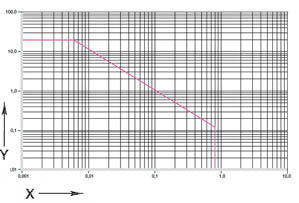The self-lubricating plain bearing made of iglidur® M250 distinguishes itself through its impact strength, vibration dampening and wear resistance. They prove to be particularly good under stresses in which the vibration dampening of the bearing is called for, for instance in sports equipment and packaging machines. As they are also in a position to tolerate dirt, they are ideal for use in agricultural machinery and garden equipment.
iglidur® M250 - Material data
| General features | Unit | iglidur® M250 | test method |
| Density | g/cm³ | 1,14 | |
| Colour | Anthracite | ||
| Max. humidity absorption at 23°C/50% R. H. | % weight | 1,4 | DIN 53495 |
| Max. water absorption | % weight | 7,6 | |
| Coefficient of surface friction, dynamic, against steel | µ | 0,18 - 0,40 | |
| PV values max. (dry) | MPa x m/s | 0,12 | |
Mechanical properties |
|||
| Bending E-module | MPa | 2.700 | DIN 53457 |
| Tensile strength at +20 °C | MPa | 112 | DIN 53452 |
| compressive strength | MPa | 52 | |
| Maximum recommended surface pressure (20° C) | MPa | 20 | |
| Shore D hardness | 79 | DIN 53505 | |
Physical and thermal properties |
|||
| Max. long term application temperature | °C | +80 | |
| Max. short term application temperature | °C | +170 | |
| Lower application temperature | °C | -40 | |
| Heat conductivity | [W/m x K] | 0,24 | ASTM C 177 |
| Coefficient of thermal expansion (at 23° C) | [K-1 x 10-5] | 10 | DIN 53752 |
Electrical properties |
|||
| Specific forward resistance | Ωcm | > 1013 | DIN IEC 93 |
| Surface resistance | Ω | > 1011 | DIN 53482 |
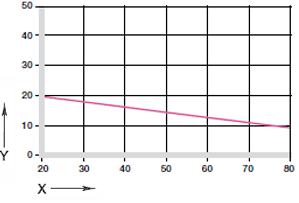
Figure 02: Maximum recommended surface pressure dependent on the temperature (20 MPa to +20 °C)
X = Temperature [°C]
Y = Load [MPa]

Figure 03: Deformation under load and temperatures
X = Load [MPa]
Y = Deformation [m/s]
Maximum recommended surface pressure represents a mechanical material parameter. Tribological conclusions cannot be drawn from it. With increasing temperatures, the compressive strength of iglidur® M250 plain bearings decreases. Fig. 02 clarifies this connection.
iglidur® M250 bearings have a maximum recommended surface pressure of 20 MPa. Compared with other iglidur® materials, the iglidur® M250 bearings are very elastic. By this elasticity they can yield very well, but reset themselves again. A plastic deformation is negligible up to the maximum recommended surface pressure.
| m/s | Rotating | oscillating | Linear |
| Constant | 0,8 | 0,6 | 2,5 |
| Short-term | 2 | 1,4 | 5 |
As a standard, iglidur® M250 is manufactured as a thick-walled bearing. iglidur® M250 is best suited for low to medium surface speeds. The maximum permitted surface speeds in the dry operation are 0.8 m/s (rotating) and 2.5 m/s (linear) respectively. In practice these limit values are not always reached due to interactions.
| iglidur® M250 | Operating temperature |
| Lower | - 40 °C |
| Upper, long-term | + 80 °C |
| Upper, short-term | + 170 °C |
| Secure axially in addition | + 60 °C |
Table 03: Temperature limits for iglidur® M250
The short-term permitted maximum temperature is 170° C. The iglidur® M250 bearings should however be exposed to this temperature only without any more load. The long-term permitted application temperature lies at 80°C. Here you'll find the wear limit, thus also the temperature at which the wear increases disproportionately. An additional securing is recommended at temperatures higher than +60°C.
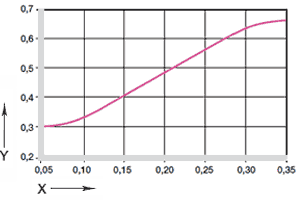
Figure 04: Coefficients of friction dependent on the surface speed, p = 0,75 MPa
X = Surface speed [m/s]
Y = Coefficient of friction μ
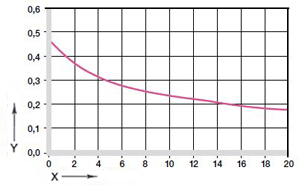
Figure 05: Coefficients of friction dependent on the load, v = 0,01 m/s
X = Load [MPa]
Y = Coefficient of friction μ
The coefficient of friction µ of a bearing is, among other things, influenced by surface speed and load (Fig. 04 and 05).
| iglidur® M250 | Dry | Grease | Oil | Water |
| Coefficients of friction µ | 0,18 - 0,40 | 0,09 | 0,04 | 0,04 |
Table 04: Coefficients of friction for iglidur® M250 against steel (Ra = 1 μm, 50 HRC)
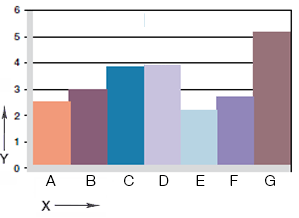
Figure 06: Wear, rotating application with different shaft materials, p = 1 MPa, v = 0.3 m/s
Y = wear [μm/km]
A = Aluminum, hard-anodized
B = machining steel
C = Cf53
D = Cf53, hard chrome-plated
E = St37
F = V2A
G = X90
Friction and wear also depend to a high degree on the reverse partner. The most favorable surface finish of the shaft for iglidur® M250 bearings is at Ra = 0.6 mm, considering the coefficient of friction. Figures 06 and 07 display a summary of the results of tests with different shaft materials conducted with iglidur® M250 plain bearings. In rotation, the shaft material plays only a relatively minor role for loads up to 2 MPa. For this reason, a suitable shaft material should be considered for high loads. These are the hardened shafts, such as CF53 or hard-chromed shafts. From Fig. 07 it becomes clear that iglidur® M250 is substantially better suited for rotation than for swivelling motion. Here it must be mentioned that in practice the vibrations acting on the bearing are often extremely high in pivoting movements. Here the iglidur® M250 can exercise its particularly dampening properties. In our test such vibrations are excluded, so that the comparison between rotation and pivoting operation amazes at first.
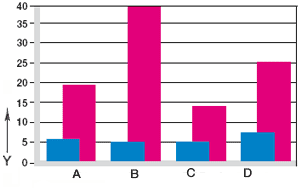
Fig. 07: Wear in swivelling and rotating applications with various shaft materials, with p = 2 MPa
Y = wear [μm/km]
A = Cf53
B = hard chrome-plated
C = V2A
D = St37
Color blue = rotating
Color pink = oscillating
| Medium | Resistance |
| Alcohols | + to 0 |
| Hydrocarbons | + |
| Fats, oils, without additives | + |
| Fuels | + |
| Diluted acids | 0 to - |
| Strong acids | - |
| Diluted bases | + |
| Strong bases | 0 |
All specifications at room temperature [+20℃]
Table 05: Chemical resistance of iglidur® M250
Electrical properties
iglidur® M250 bearings are electrically insulating.
| Specific forward resistance | > 1013 Ωcm |
| Surface resistance | > 1011 Ω |
iglidur® M250 bearings have a good resistance against chemicals. They are resistant to most lubricants. The iglidur® M250 is not affected by most weak organic and inorganic acids.
Bearings made of iglidur® M250 are conditionally usable under radioactive radiation. They are resistant up to a radiation intensity of 1 · 104 Gy.
iglidur® M250 bearings are permanently resistant against UV rays.
In vacuum, iglidur® A250 plain bearing degases. The relatively high humidity absorption of the bearing therefore permits the bearing to be used in vacuum only restrictedly.
The humidity absorption of iglidur® M250 bearings amounts to about 1.4% in standard climatic conditions. The saturation limit in water is 7.5%. This should be considered according to application conditions.
| by +23 °C/50 % r. F. | 1.4 weight-% |
| Max. water absorption | 7,5 weight-% |
Table 06: Moisture absorption
| Diameter
d1 [mm] | Shaft h9
[mm] | iglidur® M250
D11 [mm] | Housing H7
[mm] |
| Up to 3 | 0 - 0,025 | +0,020 +0,080 | 0 +0,010 |
| > 3 to 6 | 0 - 0,030 | +0,030 +0,105 | 0 +0,012 |
| > 6 to 10 | 0 - 0,036 | +0,040 +0,130 | 0 +0,015 |
| > 10 to 18 | 0 - 0,043 | +0,050 +0,160 | 0 +0,018 |
| > 18 to 30 | 0 - 0,052 | +0,065 +0,195 | 0 +0,021 |
| > 30 to 50 | 0 - 0,062 | +0,080 +0,240 | 0 +0,025 |
| > 50 to 80 | 0 - 0,074 | +0,100 +0,290 | 0 +0,030 |
Table 07: Important tolerances for iglidur® M250 bearings according to ISO 3547-1 after the press-in.
iglidur® M250 bearings require relatively large bearing clearances for optimum performances. These ensure that the bushings work reliably even with thermal expansion and water absorption. The disadvantages of the bearing clearance are again compensated by the vibration dampening properties. The bearings are designed for press-fit in a housing with h7 tolerance. After the installation in a housing with nominal diameter, the inner diameter of the bearing automatically adjusts to the D11 tolerance. The shaft should have at least an H9 tolerance.
More than 100,000 products available! Delivery and consultation Mon-Fri from 7am-8pm and Sat from 8am-12pm!
